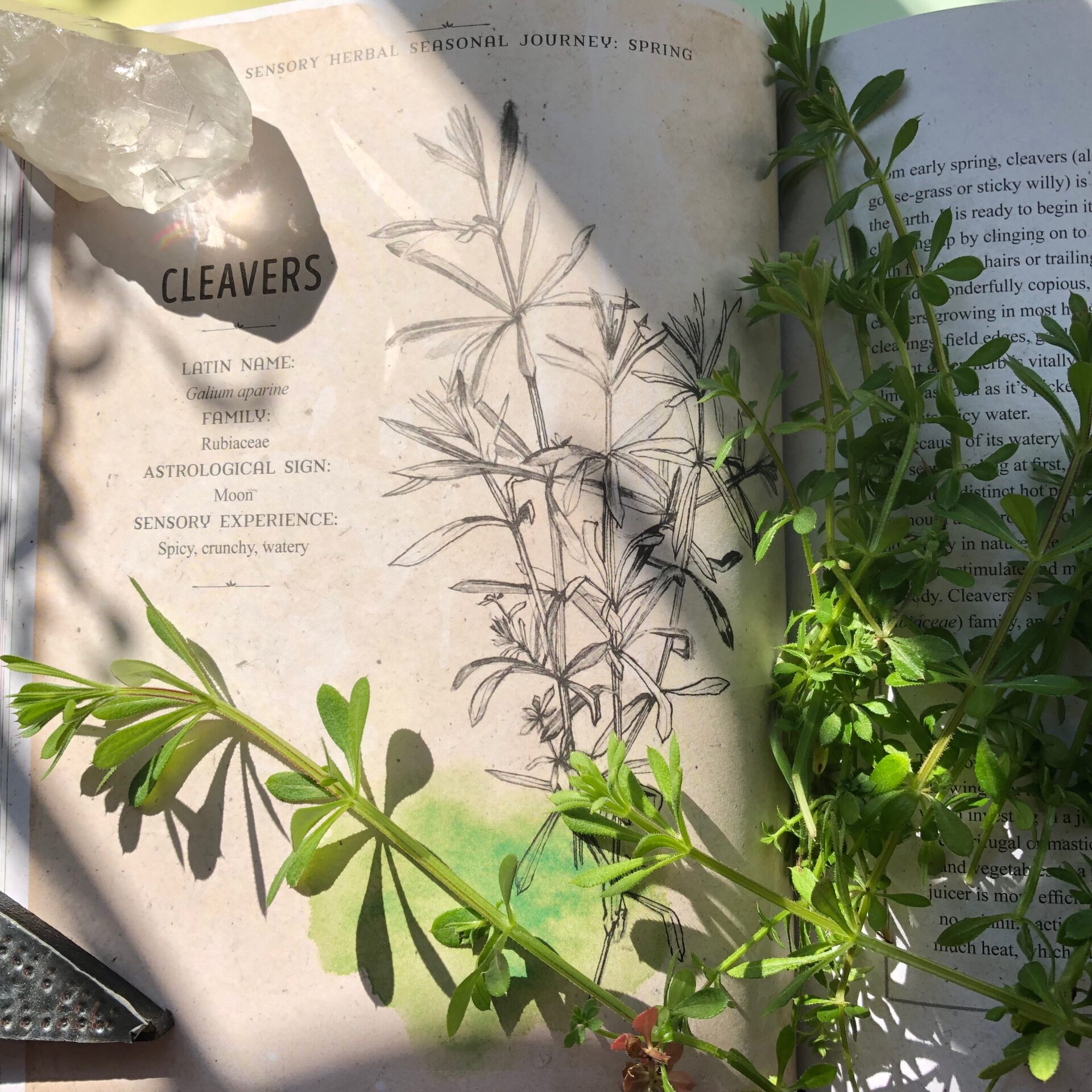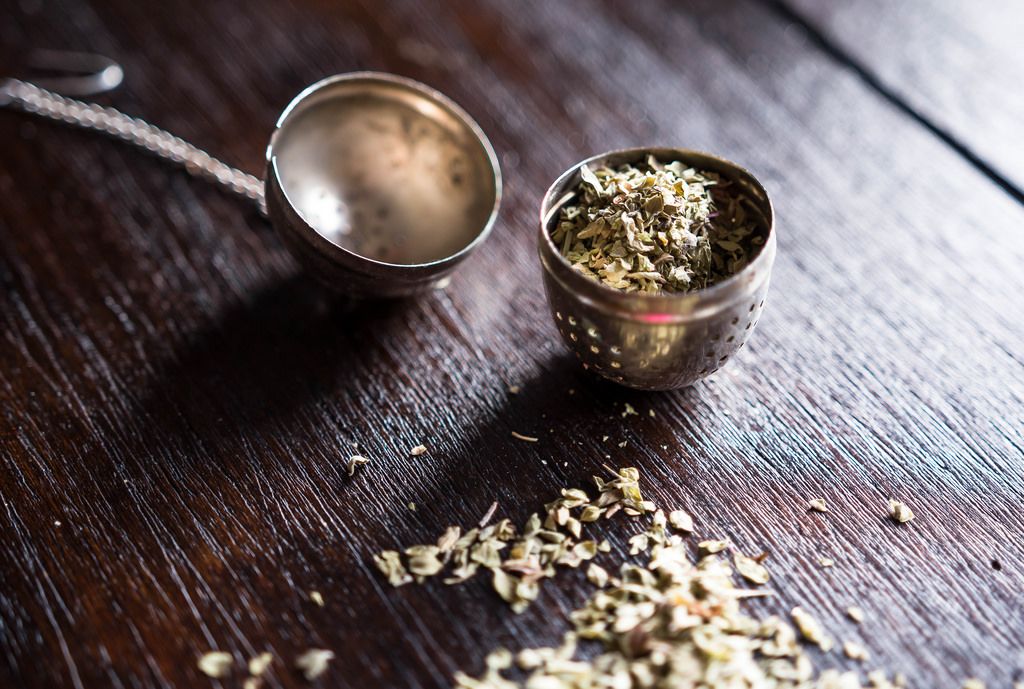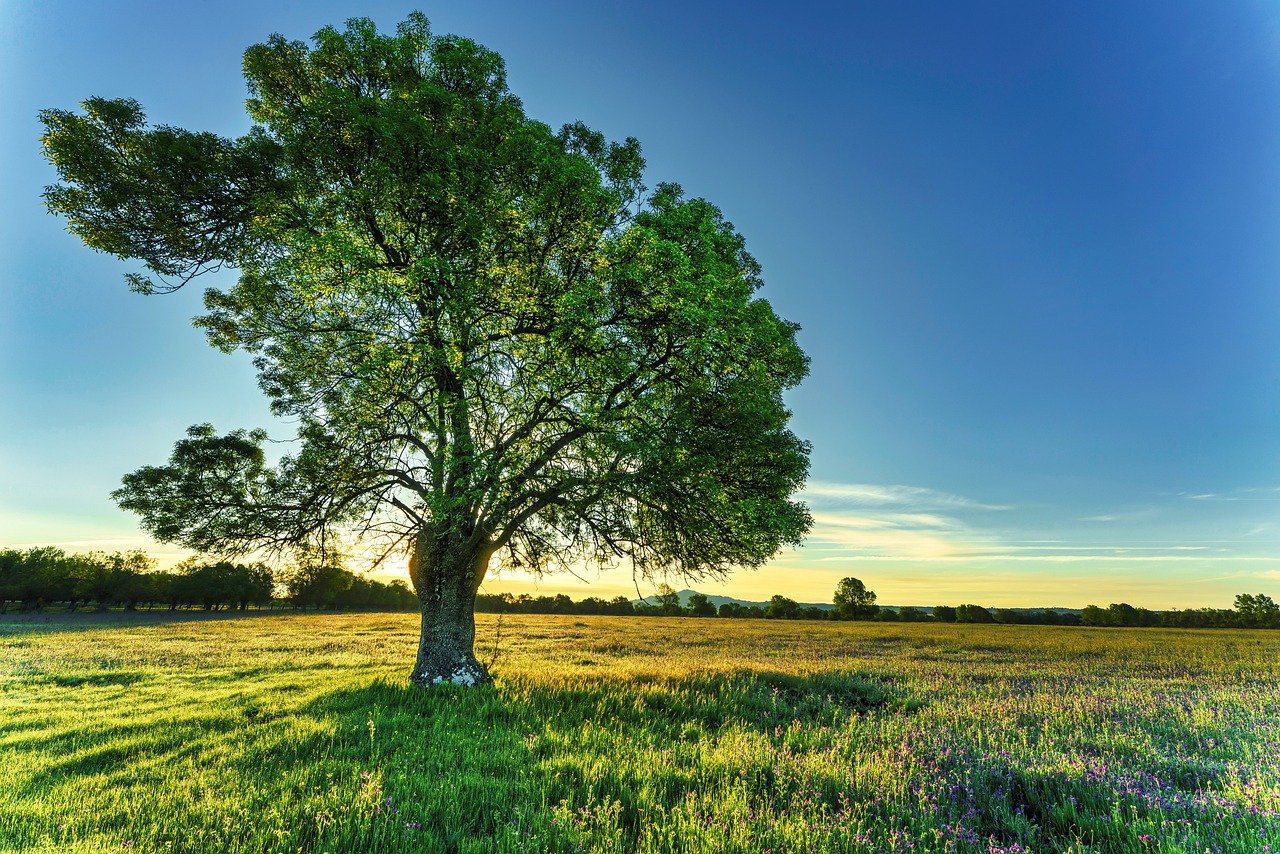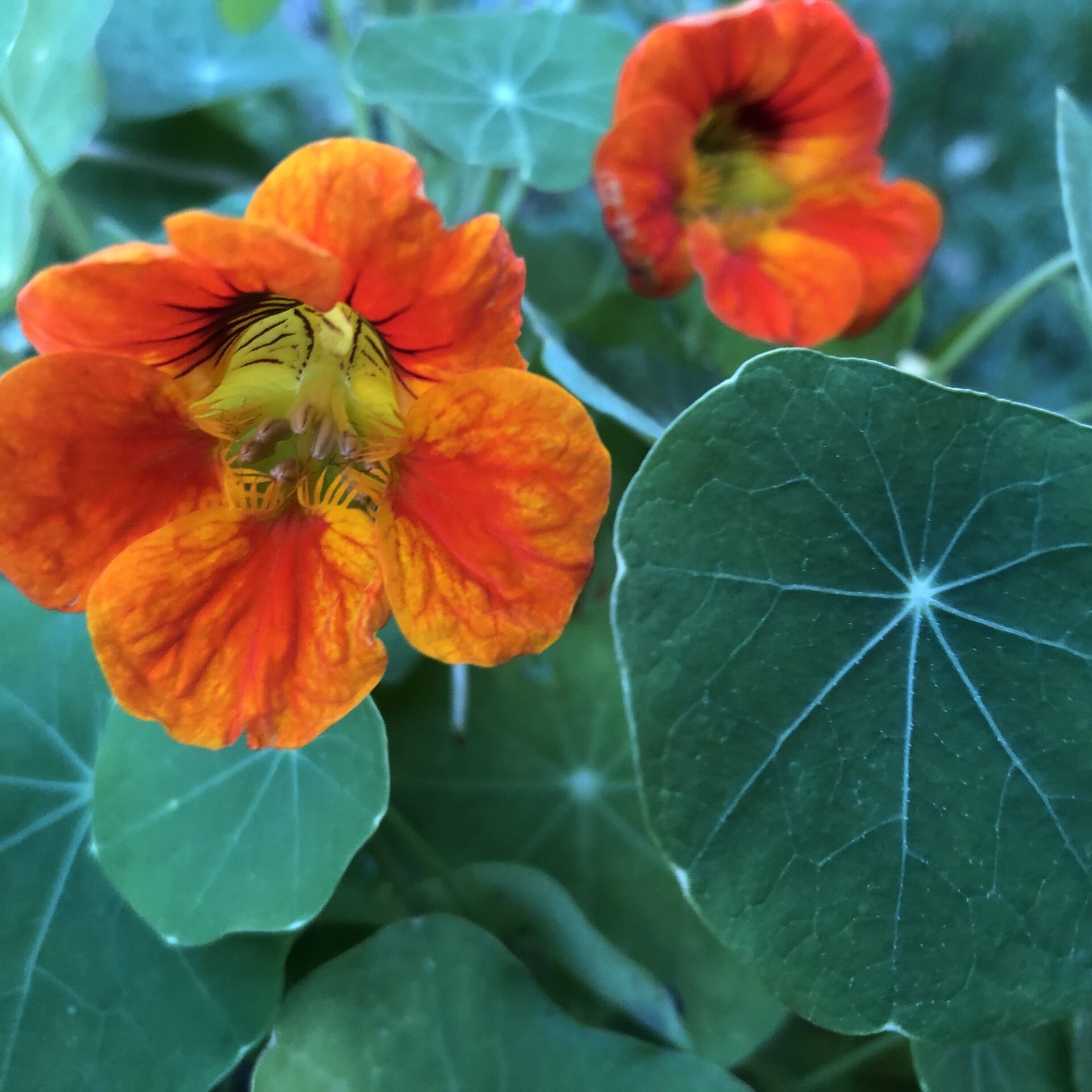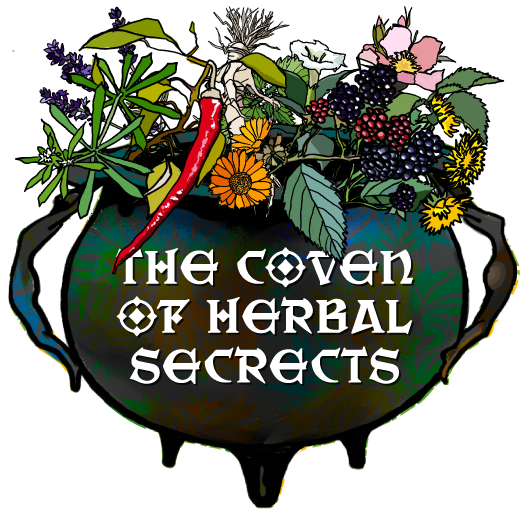The word lymph seems to get banded about when hearing about detoxes, the immune system and skin conditions, but have you ever wondered what lymph actually is? And do you know which herbs support the lymphatic system? When you learn what and how the lymphatic system works and use herbs to support it, you can help your body flush out toxins and waste. Plus, it’ll improve your overall health and well-being!
How does Lymph affect our bodies?
Lymph affects so much in the body and combines a complex system of nodes, vessels, glands, tissues and ducts. In many ways, the lymphatic system works as a natural drainage system for our bodies. It does this by eliminating the waste and contaminants that accumulate in our cells and flushes them out. When lymph fluid isn’t being flushed out, it can block up, exactly like a sewer, and is unable to fight the movement of our immune cells.
The blood flows through the body delivering oxygen on the red blood cells. White blood cells involved in the immune response, platelets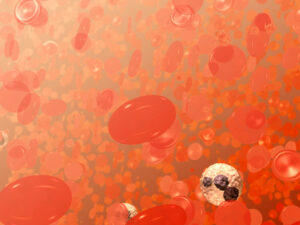 (small fragments of cells that aid in coagulation by travelling to the site of an injury and adhering to a damaged capillary to prove a base for coagulation to occur) and plasma. Plasma is the liquid part of the blood and is important as it eventually makes up the body’s lymph.
(small fragments of cells that aid in coagulation by travelling to the site of an injury and adhering to a damaged capillary to prove a base for coagulation to occur) and plasma. Plasma is the liquid part of the blood and is important as it eventually makes up the body’s lymph.
Throughout the day, fluid (plasma), seeps from the blood through the tiny blood vessels (called capillaries) into the tissue. When it first seeps from the cells and capillaries, the plasma becomes known as interstitial fluid. The lymphatic system collects this fluid and ultimately returns it to the blood. When in the lymphatic system, plasma becomes lymph. Lymph is only slightly different to plasma.
Main functions of the lymphatic system
1. Balance of fluid: the lymph keeps the balance of fluid in the body correct – it collects the fluid that drains from cells and tissue returning it to the blood stream.
2. Absorption of fats (and fat-soluble nutrients): the lymph absorbs fats from the digestive system. Fat particles are too large to go directly into the blood stream from the digestive system so they are taken up by specialised lymphatic vessels in the small intestine.
3. Immune responses: the thymus and the bone marrow are part of the lymphatic system and are where the all-important immune cells, called lymphocytes, are produced.
 Lymph glands are probably the part of the lymphatic system you are most aware of. They can swell during infection or other blood disorders or lymph issues. The lymph glands are the filtration system of the lymphatic system. They are like a store house for the lymphocytes that can get to work if an infection is detected in the lymph fluid.
Lymph glands are probably the part of the lymphatic system you are most aware of. They can swell during infection or other blood disorders or lymph issues. The lymph glands are the filtration system of the lymphatic system. They are like a store house for the lymphocytes that can get to work if an infection is detected in the lymph fluid.
What can happen in the lymph?
Insufficient or overwhelmed lymphatic system can mean that ‘toxins’ or unwanted compounds push out into the skin in the form of boils or pustules!
So, to work well the lymphatic system needs:
- Good food and nutrition to keep cells healthy and the lymph able to cope
- Exercise to keep the blood and lymph flowing and to maintain blood pressure
Some signs the lymph is not at optimum functioning include:
- Puffy skin
- Aches and pains, especially in the morning
- Exacerbation of inflammatory complains such as arthritis
- Lethargy and feeling sluggish
- Skin swellings or pustules
- Headaches and brain fog
These symptoms may be linked to other underlying causes but could be indicators of poor lymph performance or overloaded lymphatic system.
What you can do to support the lymphatic system
- Improve your diet by increasing an array of vegetables, greens, quality brown rice and unprocessed foods will help to support a ‘clear out’ of sorts.
- Increasing exercise to support blood flow and pressure
- Supporting the digestive, immune, kidney and nervous function with herbs
Herbs to support the lymphatic system
Now onto the herbs! Lymphatics are herbs that support lymphatic drainage in the body. The balancing and redistribution of fluids in the body. Lymphatics often have cross over with other systems in the body so choosing the correct herb will depend on the causes and presentation of stagnant lymph.
Here are three of our favourite herbs – there are many more – to help promote cleansing and stimulate lymphatic drainage.
1. Chickweed – Stellaria
A creeping, succulent bright green invader, famed for being anti-itch and applied for skin irritations. The tiny delicate star-shaped white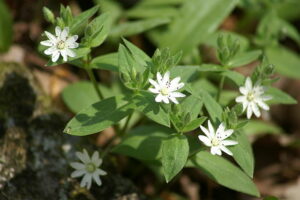 flowers that develop later in the growing year are super bright and illuminatory, just like her medicine which is predominantly cooling and moistening and relaxant.
flowers that develop later in the growing year are super bright and illuminatory, just like her medicine which is predominantly cooling and moistening and relaxant.
Chickweed acts on the lymphatics and immunity especially when there is swelling and stagnancy, helping to break up congested lymphatics by flushing out the entire system. This breaks down waste products including excess toxins as this busy little plant has an influence on the liver helping to cool irritated hot and angry tissue within this busy organ and flush out those toxins. It makes an excellent a hangover cure so one of these juices is perfect for the morning after….
2. Cleavers – Galium aperine
Galium is a large Genus of plants with over 600 different species. Some notable medicinal species that can on sight be confused for cleavers include Sweet Woodruff (Galium odoratum), and Lady’s Bedstraw (Galium verum) but neither of these is rough to the touch as cleavers.
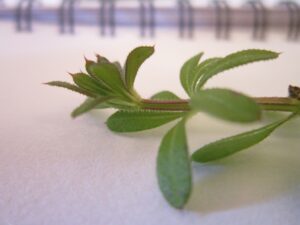 Cleavers are a potent cleansing ally, an active lymphatic decongestant with a markedly cooling nature. It is especially good for people from the hotter side of the constitutional spectrum when it requires cleansing.
Cleavers are a potent cleansing ally, an active lymphatic decongestant with a markedly cooling nature. It is especially good for people from the hotter side of the constitutional spectrum when it requires cleansing.
Sticky bud or cleavers looks like the job it does. This plant has a bottle brush appearance and the visualisation we use for how it works is the idea that the herb sweeps through the lymph clearing out any debris. This is obviously metaphor for what is happening but as a prime diuretic and with ability to break down calcifications or deposits in the body. Cleavers are key juicy herbs to support the lymphatic system – with loads of moisture contained within each cell.
Anywhere we see swollen glands in the body, we draw on cleavers and the herb can be remarkable in treating tonsillitis and in adenoid trouble. Cleavers also have an affinity with the kidneys because of the diuretic action and because of the herbs ability to break down calcifications we would prescribe where there is indication of urinary stones.
We love cleavers as a cold-water infusion, making a cucumber flavored delicious drink. If you juice cleavers in a masticating juicer, the juice is thick and dark green, full of chlorophyll with the added bonus of supporting building up platelets in the blood.
3. Self-heal – Prunella vulgaris
The story of this plant of the mint family is held within the name ‘Prunella’ which relates to the German Brunella meaning ‘quinsy’ – which is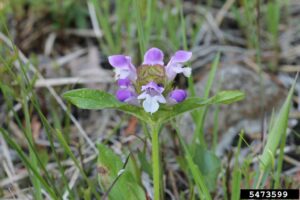 an abscess on the tonsils. Self-Heal is a specific for this painful ail.
an abscess on the tonsils. Self-Heal is a specific for this painful ail.
Self-heal is astringent gently drying and able to redistribute fluid in the body, particularly lower-body lymphatic movement. We love to draw on Self Heal for supporting varicose veins, where stagnation has built up in the lower body, the herbs is both a lymphatic stimulant and a diuretic so wonderful with menstrual fluid retention as well – helping to relive any bloating that comes with a period. In cases of Fibroids and Uterine cysts where there has literally been ongoing stagnation and blockages this herb along with others specific to the womb area can be instrumental in increasing movement and flow again, aiding to shrink or dissolve growths.
Don’t stop reading yet…!
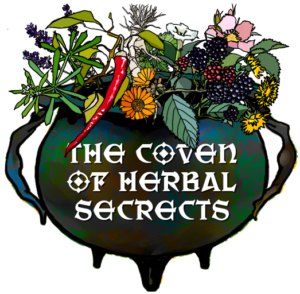 Do you want to find out more about herbs and the lymphatic system? Why not join our Coven? You’ll soon have access to our best resources while increasing your confidence and knowledge about the magic of herbs, plus step by step guides to getting to know your plants better.
Do you want to find out more about herbs and the lymphatic system? Why not join our Coven? You’ll soon have access to our best resources while increasing your confidence and knowledge about the magic of herbs, plus step by step guides to getting to know your plants better.
Our in-depth article, Herbs and the Lymphatic System – Skin, Digestion and Immunity covers:
- What is going on in our bodies?
- What can happen in the lymph?
- Holistic view of the lymphatic system
- What is a lymphatic herb?
- When might a lymphatic herb be used in a herbal prescription?
- And much more!

